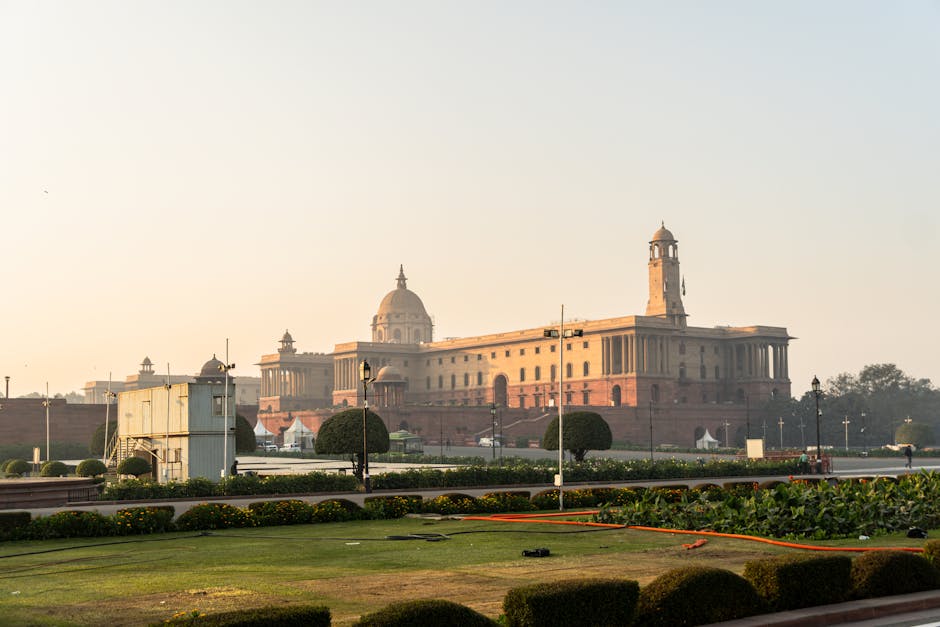The contemporary political landscape is marked by a growing chasm between opposing viewpoints. Political polarization, a phenomenon characterized by increasingly entrenched ideological divisions, is a defining feature of many modern democracies. This escalating fragmentation carries a multitude of detrimental consequences, impacting societal cohesion, policymaking effectiveness, and even the very health of democratic institutions. Understanding these repercussions is crucial for navigating the challenges ahead.
A Breakdown in Dialogue and Trust:
A significant consequence of political polarization is the erosion of productive dialogue and trust. When individuals are firmly entrenched in their respective political camps, open discussion becomes increasingly difficult, if not impossible. The very act of engaging with the opposing side is often perceived as a sign of weakness or betrayal, fostering a climate of hostility and suspicion. This breakdown in dialogue is not limited to public discourse; it extends to personal interactions, fracturing communities and making consensus-building exceedingly challenging. Trust in institutions, including the media and elected officials, is also undermined by the perception of partisan bias, further exacerbating the divide.
The Erosion of Policy Effectiveness:
Polarization significantly hinders effective policymaking. Political gridlock becomes the norm as legislators struggle to find common ground and forge bipartisan solutions. Legislative processes become bogged down in partisan bickering, making it difficult to address pressing societal problems like economic inequality, environmental degradation, and public health crises. Priorities become skewed, with issues perceived as partisan rather than essential societal needs. The emphasis shifts towards score-settling and political posturing, undermining the pursuit of practical, effective policy solutions.
Weakened Democratic Institutions:
The prolonged state of political polarization can also weaken democratic institutions. Public confidence in governmental processes and institutions declines as citizens perceive them as biased or ineffective. A rise in distrust can create an environment ripe for populist movements and extremist ideologies. When the public loses faith in the system’s ability to function effectively, it potentially paves the way for actions that compromise democratic values and principles. This is not just about formal institutions; it also pertains to the fundamental trust that holds a democratic society together.
Social Fragmentation and Societal Health:
Political polarization has far-reaching implications for societal cohesion and mental well-being. The intense focus on opposing viewpoints can foster feelings of isolation and alienation. Individuals may feel compelled to engage only with those who share their perspectives, further reinforcing echo chambers and limiting exposure to diverse viewpoints. This contributes to a decrease in civic engagement and social capital, weakening the fabric of society. Furthermore, the emotional toll of constant exposure to polarized discourse can negatively impact mental health, contributing to stress and anxiety.
Impact on Political Participation and Voter Turnout:
Partisan divisions can affect political participation. A sense of disillusionment with the political system, fuelled by polarization, can lead to a decrease in voter turnout. Individuals may feel their voice is unheard or inconsequential in a deeply divided landscape. This disengagement can create a political system that becomes less representative of the entire populace, further widening the chasm between the electorate and those in power.
Potential for Escalation and Violence:
Extreme political polarization can create fertile ground for the growth of extremist ideologies and even violence. When the line between political disagreement and personal animosity becomes blurred, the potential for dangerous outcomes escalates. The spread of misinformation and conspiracy theories, often amplified by social media, can further incite conflict and polarize public opinion. A failure to address the underlying issues and encourage productive dialogue can lead to serious consequences.
Strategies for Mitigation:
Countering the negative effects of political polarization requires a multi-faceted approach. Encouraging civil discourse and fostering empathy is essential. Promoting media literacy and critical thinking can help individuals better navigate the often-biased information landscape. Building bridges between different political groups through shared experiences and collaborative projects can help foster a sense of shared identity and common purpose. Education, and fostering tolerance and respect for dissenting views are paramount.
Conclusion:
Political polarization poses a serious threat to democratic societies. Its impact extends from the erosion of trust and effectiveness in policymaking to the fragmentation of communities and the potential for escalation. Acknowledging the consequences of this trend is a prerequisite to developing strategies for mitigation. Ultimately, fostering constructive dialogue, promoting shared values, and strengthening democratic institutions is crucial to navigating this challenging terrain and building a more cohesive and functional future. If we fail to address this problem, the risk of irreparable damage to the very foundation of our democratic societies becomes a very real prospect.






